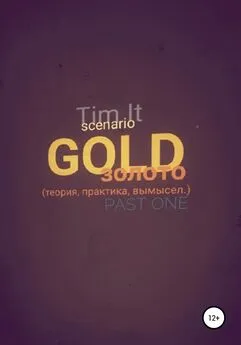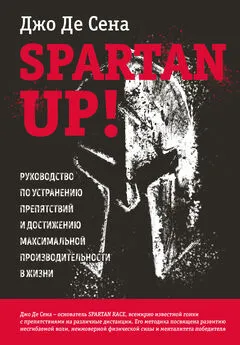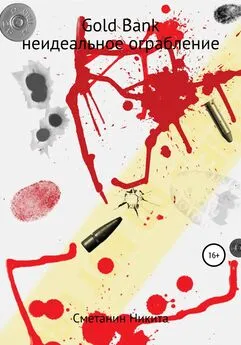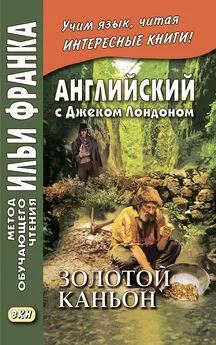Clive Cussler - Spartan Gold
- Название:Spartan Gold
- Автор:
- Жанр:
- Издательство:неизвестно
- Год:неизвестен
- ISBN:нет данных
- Рейтинг:
- Избранное:Добавить в избранное
-
Отзывы:
-
Ваша оценка:
Clive Cussler - Spartan Gold краткое содержание
The debut of a brand-new, action-packed series from the #1 New York Times bestselling master of 'pure entertainment'.
Thousands of years ago, the Persian king Xerxes the Great was said to have raided the Treasury at Delphi, carrying away two solid gold pillars as tribute. In 1800, Napoleon Bonaparte and his army stumble across the pillars in the Pennine Alps. Unable to transport them Napoleon creates a map on the labels of twelve bottles of rare wine. And when Napoleon dies, the bottles disappear.
Treasure hunters Sam and Remi Fargo are exploring the Great Pocomoke Swamp in Delaware when they are shocked to discover a World War II German u-boat. Inside, they find a bottle taken from Napoleon's 'lost cellar.' Fascinated, the Fargos set out to find the rest of the collection. But another connoisseur of sorts has been looking for the bottle they've just found. He is Hadeon Bondaruk - a half- Russian, half-Persian millionaire. He claims to be a descendant of King Xerxes himself.
And he wants his treasure back.
Spartan Gold - читать онлайн бесплатно полную версию (весь текст целиком)
Интервал:
Закладка:
“Yes?” he said simply.
Giuseppe was barely five feet tall with wispy white hair that jutted out from his head at all angles. He couldn’t have weighed more than ninety pounds. He stared up at them with surprisingly sharp blue eyes.
“Hello. I’m Sam and this is—”
Giuseppe waved his hand dismissively. “You have a question for me?”
“Um, yes. . . . We’ve got a riddle on our hands. We’re looking for the name of a man, probably from Istria in Croatia, that might have a connection to either Poveglia or Santa Maria di Nazareth.”
“Give me the riddle,” Giuseppe ordered.
“ ‘Man of Histria, thirteen by tradition,’ ” Sam recited.
Giuseppe said nothing, but stared at them for ten seconds as he pursed his lips from side to side.
Remi said, “We also think he might have something to do with lazarets—”
Abruptly Giuseppe turned around and shuffled away. He stopped in the aisle, then stared at each wall in turn. His index finger tapped the air before him in the manner of a slow-motion conductor.
“He’s cataloging books in his head,” Remi whispered.
“Quiet, please,” Giuseppe barked.
After two minutes Giuseppe went to the right-hand wall and pushed the ladder to the far end. He climbed up, plucked a book off the shelf, paged through it, then put it back and climbed back down.
Five more times he repeated the process, staring at the walls, conducting the air, and mounting the ladder before climbing back down and shuffling back to them.
“The man you’re looking for is named Pietro Tradonico, the Doge of Venice from 836 to 864. Chronologically he was the eleventh Doge, but by tradition he is considered the thirteenth. Tradonico’s followers fled to the island of Poveglia after he was assassinated. They had some huts near the island’s northeastern corner.”
With that, Giuseppe turned and started shuffling away.
“One more question,” Sam called.
Giuseppe turned, said nothing.
“Is Tradonico buried there?” asked Sam.
“Some think so, some not. His followers claimed the body after his assassination, but no one knows where it was taken.”
Giuseppe turned again and doddered away.
Remi called, “Thank you.”
Giuseppe didn’t reply.

“Did you find what you were looking for?” Maria asked a few minutes later when they came out. After they’d pushed the buzzer beside the door it had taken her five minutes to arrive. During that time, Giuseppe continued about his work as though they didn’t exist.
“We did,” Sam replied. “Giuseppe was everything you said he’d be. We appreciate your help.”
“It’s my pleasure. Is there anything else I can do for you?”
“Since you’re being so helpful . . . what’s the best way to get to Poveglia?”
Maria stopped walking and turned to them. Her face was drawn. “Why would you want to go to Poveglia?”
“Research.”
“You’re welcome to use our facilities. I’m sure Giuseppe would—”
Sam said, “Thank you, but we’d like to see it for ourselves.”
“Please reconsider.”
“Why?” Remi asked.
“How much do you know about Poveglia’s history?”
“If you’re talking about the plague pits, we read—”
“Not just those. There’s much more. Let’s have a drink. I’ll tell you the rest.”
CHAPTER 54
Explain it to me again,” Remi whispered. “Why couldn’t this wait till morning?”
“It is morning,” Sam replied, turning the wheel slightly to keep the bow on course. Though their destination showed no lights, its bell tower was nicely silhouetted against the night sky.
From above, Poveglia looked like a fan, measuring five hundred yards from its flared tip to its base, and three hundred yards at its waist where a narrow, walled canal bisected the island from west to east, save for a sandbar in the center.
“Don’t get technical on me, Fargo. As far as I’m concerned, two A.M. is the middle of the night. It isn’t morning until the sun comes up.”
After drinks with Maria they’d managed to find an open boat rental office. The owner had only one craft left, a twelve-foot open dory with an outboard motor. Though not luxurious by any means, it would suffice, Sam decided. Poveglia was only three miles from Venice, inside the sheltering arms of the lagoon, and there was little wind.
“Don’t tell me you bought into Maria’s stories,” Sam said.
“No, but they weren’t exactly cheery.”
“That’s the truth.”
In addition to having served as a dumping ground for plague victims, throughout its thousand-year history Poveglia had been home to monasteries, colonies, a fort and ammunition depot for Napoleon, and most recently in the 1920s, a psychiatric hospital.
In frightening detail Maria had explained that the doctor in charge, after hearing the patients complain about seeing the ghosts of plague victims, began to conduct crude lobotomies and gruesome experiments on the inmates, his own brand of medical exorcism.
Legend had it that the doctor eventually began seeing the same ghosts his patients had reported and went insane. One night he climbed up the bell tower and jumped to his death. The remaining patients returned the doctor’s body to the bell tower and sealed the exits, entombing him forever. Shortly thereafter the hospital and the island were abandoned, but to this day Venetians reported hearing Poveglia’s bell ringing or seeing ghostly lights moving in the windows of the hospital wing.
Poveglia was, Maria told them, the most haunted place in Italy.
“No, I don’t buy the part about the ghosts,” Remi said, “but what went on in that hospital is well documented. Besides, the island’s closed to tourism. We’re breaking and entering.”
“That’s never stopped us before.”
“Just trying to be the voice of reason.”
“Well, I have to admit it’s very creepy, but we’re so close to solving this riddle I want to get it done.”
“Me, too. But promise me something: One gong from that bell tower and we’re gone.”
“If that happens you’ll have to race me to the boat.”
A few minutes later the mouth of the canal came into view. A few hundred yards down the shoreline they could see the dark outline of the hospital wing and bell tower rising over the treetops.
“See any phantom lights?” Sam asked.
“Keep joking, funny man.”
He maneuvered the dory through the chop created by the lapping waves and they slipped into the canal. Sheltered from the seaward side, the canal saw little circulation; the surface was brackish and dotted with lily pads and in some places the water was only a few feet deep. To their right a brick wall draped in vines slipped past; to their left, trees and scrub brush. Above they heard the rasp of wings and looked up to see bats wheeling and diving after insects.
“Just great,” Remi muttered. “It had to be bats.”
Sam chuckled. Remi had no fear of spiders or snakes or bugs, but she loathed bats, calling them “rats with wings and tiny human hands.”
Ten minutes later they reached the sandbar. Sam revved the engine, driving the bow onto the soil, then Remi got out and dragged the dory a few feet higher. Sam joined her and staked down the bow line. They clicked on their flashlights.
“Which way?” she asked.
He pointed to their left. “North end of the island.”
They walked across the sandbar, then up the opposite bank to a dense hedge of scrub. They found a thin spot, pushed their way through, and emerged in a football-sized field surrounded by low trees.
Remi whispered, “Is this . . . ?”
“It might be.” None of the maps of Poveglia had agreed upon the exact locations of the plague pits. “Either way, it’s odd that nothing’s growing here.”
They continued across the field, stepping gingerly and shining their flashlights over the dirt. If this was the site of a plague pit, they were treading on the remains of tens of thousands of people.
When they reached the opposite tree line Sam led them east for a hundred feet before turning north again. The trees thinned out and they emerged into a small clearing filled with knee-high grass. Through the trees on the other side of the clearing they could see moonlight glinting off water. In the distance rang a gong.
“Buoy in the lagoon,” Sam whispered.
“Thank God. My heart skipped a couple beats.”
“Here’s something.” They walked forward and stopped before a block of stone peeking above the grass. “Must have been part of a foundation.”
“Over there, Sam.” Remi was shining her flashlight at what looked like a fence post on the right side of the clearing. They walked over. Affixed to the post was a Plexiglas-enclosed placard:
Ninth-century site of the followers of Pietro Tradonico, Doge of
Venice 836 to 864. Remains disinterred and relocated in 1805.
—Poveglia Historical Society
“If Tradonico was here, he’s gone now,” Remi said.
“ ‘Relocated in 1805,’ ” Sam read again. “That was about the time Napoleon was crowned king of Italy, right?”
Remi caught on: “And about the time he had Poveglia converted to a munitions depot. If Laurent was with him, this is probably where they got their inspiration for the riddle.”
“And they would have known where Tradonico’s remains were sent. Remi, there was never a bottle here. The whole riddle was just a stepping-stone to send Napoleon Junior somewhere else.”
“But where?”
The next morning at two minutes after eight Sam and Remi’s water taxi stopped on a small side street two blocks east of Santa Maria Maddalena Church. They paid the driver, got out, and stepped up to a red door bordered by black wrought-iron railing. A tiny bronze plaque on the wall beside the door read, POVEGLIA HISTORICAL SOCIETY.
Sam pressed the buzzer. They heard footsteps clicking on wood and then the door opened, revealing a plump woman in a pink and yellow floral dress. “Sì?”
“Buon giorno,” Remi said. “Parla inglese?”
“Yes, I speak English very well. Can I help you?”
“Are you the curator?”
“Pardon?”
“Of the Poveglia Historical Society,” Sam said, smiling and pointing to the plaque.
The woman leaned out the door, squinted at the plaque, then frowned. “That’s old,” she said. “The society hasn’t met for five or six years.”
“Why?”
“All that ghost business. All people wanted to know about was the hospital and the plague pits. The rest of its history was forgotten. I was the secretary. Rosella Bernardi.”
“Perhaps you might be able to help us,” Remi said. She introduced herself and Sam. “We have a few questions about Poveglia.”
Signora Bernardi shrugged, motioned them inside, then led them down the hall into a kitchen decorated in black and white checkered tile. “Sit. I have coffee made,” she said, pointing to the kitchen table. She filled three mugs from a silver percolator then sat down. “What do you want to know?”
“We’re interested in Pietro Tradonico,” Sam said. “Do you know if he was buried on Poveglia?”
Signora Bernardi got up, walked across the kitchen, and opened a cabinet above the sink. She pulled down what looked like a brown leather photo album and returned to the table. She opened the album and flipped to a page near the middle. Under a sheet of acetate was a yellowed sheet of paper bearing dozens of lines of handwritten notes.
Читать дальшеИнтервал:
Закладка:

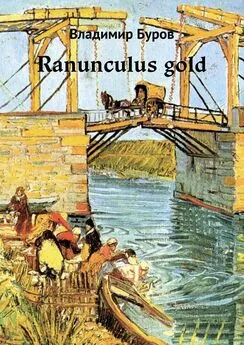
![Джо Сена+ - Spartan up! Руководство по устранению препятствий и достижению максимальной производительности в жизни [litres]](/books/1059232/dzho-sena-spartan-up-rukovodstvo-po-ustraneniyu-pr.webp)
